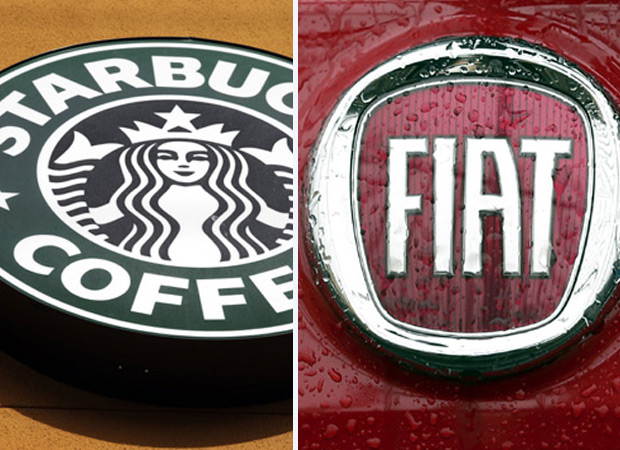BRUSSELS, Belgium—The European Union ordered Starbucks and Fiat on Wednesday to each repay up to 30 million euros ($34 million) in back taxes in a landmark tax avoidance case launched in the wake of the LuxLeaks scandal.
Brussels said tax deals that the Netherlands offered US coffee giant Starbucks and Luxembourg gave Italian automaker Fiat were illegal, dealing its first major blow to big business in a campaign against sweetheart tax arrangements.
The Netherlands and Luxembourg both said they disagreed with the European Commission’s demand that they reclaim years of unpaid tax from the two companies and vowed to fight the decision.
Decisions on Apple and Amazon are also looming after the EU launched a series of probes last year following the LuxLeaks affair, which revealed that top global companies had negotiated lower tax rates, in some cases as low as one percent, in secret pacts with Luxembourg.
“Tax rulings that artificially reduce a company’s tax burden are not in line with EU state aid rules—they are illegal. All companies, big or small, multinational or not, should pay their fair share of tax,” EU Competition Commissioner Margrethe Vestager said.
The LuxLeaks revelations were a huge embarrassment to Jean-Claude Juncker, who took over as European Commission president last November after serving nearly 19 years as Luxembourg’s prime minister, covering the period when the tax deals were made.
‘More investigations’
Tax deals between EU member states and companies—known as tax rulings—are not in themselves illegal and the firms involved insist they fully comply with the tax laws where they operate.
But they have run afoul of the European Commission’s tough rules on state aid, which are designed to ensure fair competition. It argues that the rulings unfairly benefit bigger companies at the expense of smaller, often less influential rivals.
In Fiat’s case, Vestager said that if the tax bill truly reflected market conditions, “the taxable profits declared in Luxembourg would have been 20 times higher.”
Vestager—a former Danish economy minister who has taken a tough line on tax avoidance since taking office last year—warned that the Fiat and Starbucks cases were not the last.
“I hope it is a clear message that these are the first two cases taken in this mandate but we have ongoing investigations and there may be more investigations to come,” she said.
Luxembourg said it would explore all legal options.
“Luxembourg disagrees with the conclusions reached by the European Commission in the Fiat Finance and Trade case and reserves all its rights,” Finance Minister Pierre Gramegna said.
An official in Luxembourg who wished to remain anonymous told AFP that this could include bringing the case to the European Court of Justice, the EU’s highest court.
‘Tip of the iceberg’
The Netherlands said it was “surprised” by the Commission’s finding and would decide on its next move in the coming weeks.
“The method employed by the Netherlands when it comes to the Starbucks case has been internationally recognised,” Dutch Deputy Finance Minister Eric Wiebes said.
Starbucks in a statement said it stood by the Dutch government’s reaction, adding that it would seek to appeal the decision.
Eva Joly, a Green MEP and longtime critic of tax rulings, warned that Luxembourg and the Netherlands were hardly alone in abusing the practice.
“The commission has only addressed the tip of the iceberg,” Joly said.
Activists for fairer taxation said the decision would do little to change corporate habits.
“It’s clear that if the tax system isn’t changed, the Commission will not be able to keep up with the tax-related acrobatics of multinational corporations,” said Tove Ryding, a tax specialist for the NGO Eurodad.
US tech giant Apple and Internet retailer Amazon are still awaiting the EU’s judgement on their tax deals with Ireland and Luxembourg respectively.
Vestager is already involved in a bitter anti-trust fight with Google, which the EU accuses of abusing its dominant market position to promote its own services.
But attacking Apple and Amazon would come at a delicate time for EU-US business ties as Brussels and Washington negotiate a huge free trade deal.
It would also follow a decision by the EU’s top court to reject a transatlantic personal data pact that risks punishing Silicon Valley companies operating in Europe.
